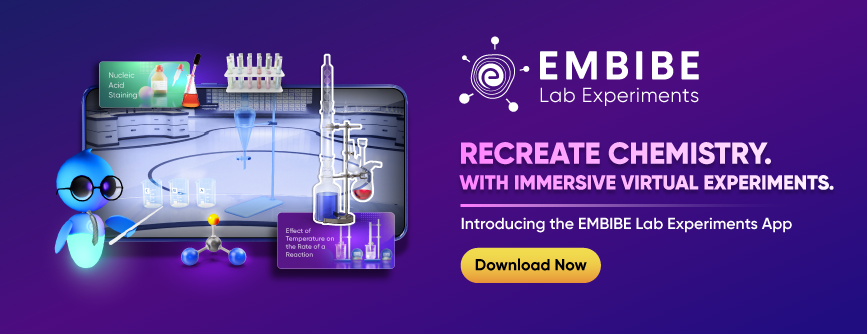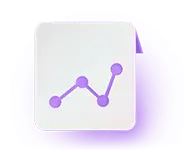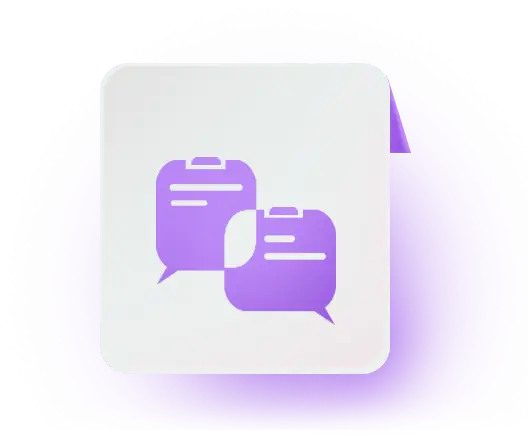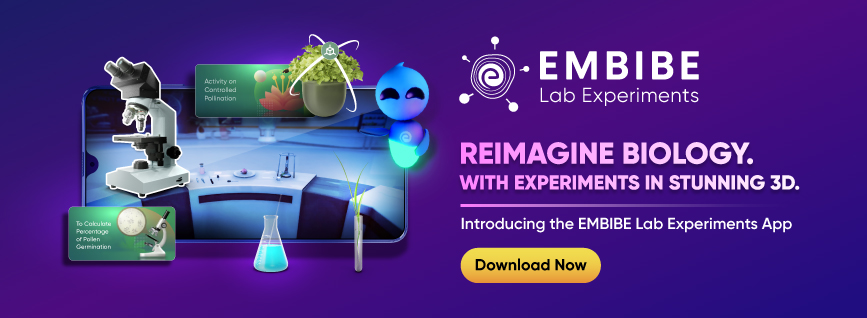- Written by aparna
- Last Modified on 21-11-2024
The Council for the Indian Secondary Certificate Examination (CISCE), is a private board of school education in India that conducts the Indian Certificate of Secondary Education, or ICSE, for Class 10 students. The CISCE board is headquartered in New Delhi. It is one of India’s most well-known educational boards, holding the annual ICSE Class 10 and ISC Class 12 board examinations.
The board is also responsible for providing the syllabus, textbooks, and exam patterns for Class 10 students. Class 10 is an important phase in a student’s learning journey, so they should thoroughly prepare for the exams. In this article, students will find details about the exam, syllabus, exam pattern, and many more. Continue reading further to learn more about the ICSE Class 10 exam 2025.
ICSE Class 10 Exam Summary
ICSE Class 10 is one of the most important first national-level exams for students. Many students consider this exam to be the turning point as it will hep them understand what they should be pursuing further in their life. The ICSE Class 10 exam is conducted annually usually in March. Before diving into further details, let us look at the table below for the ICSE Class 10 exam summary:
| Particulars |
Details |
|
Exam Name
|
ICSE Class 10
|
|
Board Name
|
Council for the Indian Secondary Certificate Examination
|
|
Exam Mode
|
Offline
|
|
Exam Frequency
|
Once a year
|
|
Exam Duration
|
3 hours
|
|
Full Marks
|
100
|
|
Passing Marks
|
33%
|
ICSE Official Website Link
https://www.cisce.org/
ICSE Class 10 Exam Latest Update
ICSE Class 10 Registration Process 2025
Students appearing for the ICSE Class 10 exam should have completed their registration to be able to sit for the exam. The process is usually done by the school authorities wherein they fill out the details of students, pay a registration fee and submit the form online. Once that is done, students will get a registration number, and their details will be used on the admit card. Below are the steps to complete the ICSE Class 10 application/ registration:
- 1st Step: Visit the board’s official website, i.e. cisce.org
- 2nd Step: They will be directed to the login page, where they have to put in their username and password.
- 3rd Step: Once logged in, click on Registration from the drop-down menu under ICSE.
- 4th Step: Click yes when prompted and proceed.
- 5th Step: Fill in the information asked and pay the fees.
- 6th Step: Click on save and submit to complete the registration process.
ICSE Class 10 Exam Pattern 2025
Students appearing for the ICSE Class 10 exam need to be familiar with the exam pattern. ICSE Class 10 exams have 100 marks. Knowing the exam pattern will make it easier for the students to come up with a preparation strategy that will help them, in the long run, to prepare for the exams. Students need to appear for 7 subjects for ICSE Class 10 as per the rule. The seven subjects are further divided into three categories:
- Group 1- 4 compulsory subjects
- Group 2- 2 optional subjects
- Group 3- 1 optional subject
Students must choose these optional subjects when they are in Class 9, while registering for Class 10 exams.
Given below are the details pertaining to the Class 10 ICSE 2025 exam pattern:
ICSE Class 10 Exam Pattern 2025 – Scoring Pattern (+/- Marking)
Below, we have provided the ICSE Class 10 exam pattern in detail. The official exam pattern and the marking scheme for ICSE 10th 2025 highlight that the major subjects will have a weightage of 80% for external marks and 20% for internal marks for group I and group II subjects.
Likewise, there will be 50% for external marks and 50% for internal marks for group III subjects. The final marks for any subject will be the aggregate of both external and internal marks. Below we have provided ICSE Class 10 exam pattern for your reference:
| Groups |
Subjects Under Different Groups |
External Marks (%) |
Internal Marks (%) |
| I |
(i) History, Civics, Geography
(ii) English
(iii) Second Language (one/two) |
80 |
20 |
| II |
(iii) Science (Physics, Chemistry, Biology)
(iv) Mathematics
(v) Commercial Studies
(vi) Economics
(vii) Environmental Science
(viii) A Classical Language
(ix) A Modern Foreign Language |
80 |
20 |
| III |
(i) Arts
(ii) Performing Arts
(iii) Computer Applications
(iv) Economic Applications
(v) Commercial Applications
(vi) Fashion Designing
(vii) Physical Education
(viii) Yoga
(ix) Cookery
(x) Home Science
(xi) A Modern Foreign Language
(xii)Technical Drawing Applications
(xiii) Environmental Applications |
50 |
50 |
Embibe Lab Experiments for ICSE Class 10 Science
The practical exams form an important part of the ICSE Class 10 board exams. Students need to clear the practical exam also. The score obtained in the final practical exam is added to the marks obtained in the theory paper. Thus, students should also focus on practicals. They can now perform virtual experiments independently on the Embibe Lab Experiments app. The app lets them execute a practical with step-wise guidance. Students can also take evaluation test to know who well they understood the topics. Click on the links below to access the experiments on the app now.
ICSE Class 10 Exam Syllabus 2025
Students preparing for the ICSE Class 10 board exams need to be familiar with the syllabus. Scoring marks in ICSE can be significantly easier as soon as the students become familiar with the syllabus. The ICSE Class 10 syllabus can be helpful for the students to get an overview of the subject and know what chapters to study. Accordingly, they will be able to allocate adequate time for each subject and ace the board exam. Below we have provided the ICSE Class 10 subject-wise syllabus for reference.
ICSE Class 10 Mathematics Syllabus
Class 10 Maths introduces students to concepts that are useful in higher classes. And it is necessary that they understand them thoroughly to be able to solve problems. Students can check the ICSE Class 10 Mathematics syllabus below:
| Chapters |
Topics |
| Commercial Mathematics |
Goods & Service Tax (GST)
Banking |
| Algebra |
Linear Inequations
Quadratic equations in one variable
Ratio and Proportion
Factorization of Polynomials
Matrices
Arithmetic Progression
Co-ordinate Geometry |
| Geometry |
Similarity
Circles |
| Mensuration |
Area and Volume of Cylinder
Cone and Sphere
|
| Trigonometry |
Heights and Distances
Solve/Prove Simple Algebraic Trigonometric Expressions
|
| Statistics |
Mean
Median
Mode
Histograms and Ogive
|
| Probability |
Random Experiments
Sample Space
Events
Definition of Probability
Simple Problems on Single Events
|
ICSE Class 10 Biology Syllabus 2025
Biology deals with the study of life, physiology, and anatomy of living beings. Students should ensure that they go through all the topics included in the syllabus to score good marks in the exam. They can find the ICSE Class 10 Biology syllabus below:
| Chapters |
Topics |
|
Basic Biology
|
Cell Cycle and Cell Division
Structure of Chromosome
Genetics
|
|
Plant Physiology
|
Absorption by Roots,
Imbibition
Diffusion and Osmosis
Transpiration
Photosynthesis
Chemical Coordination in Plants
|
|
Human Anatomy and Physiology
|
Circulatory System
Excretory System
Nervous System
Endocrine System
Reproductive System
|
| Population |
Population Explosion in India
Need for Adoptiong Controlling Measures
|
| Pollution |
Types and Sources of Pollution
Biodegradable and Non-biodregradable Waste
Effects of Pollution
|
ICSE Class 10 Physics Syllabus
Physics is the study of the physical world and its various phenomena. The Class 10 Physics syllabus includes topics like Force, Light, Sound, and many more. Students should refer to the syllabus before preparing for the exam and they can check the ICSE Class 10 Physics syllabus below:
| Chapters |
Topics |
| Force, Work, Power and Energy |
Turning Forces Concept, Gravity, Uniform Circular Motion, Work, Energy, Power and their Relation, Different Types of Energy, Machines as Force Multipliers, Principle of Conservation of energy |
| Light |
Refraction of Light, Total Internal Reflection: Critical Angle, Lenses, Electromagnetic Spectrum. |
| Sound |
Reflection of Sound Waves, Vibrations and Resonance, Loudness, Pitch and Quality of Sound |
| Electricity and Magnetism |
Ohm’s Law, Electrical Power and Energy, Household Circuits, Magnetic Effect of a Current |
| Heat |
Calorimetry, Latent heat; loss and gain of heat |
| Modern Physics |
Radioactivity and Changes in the Nucleus, Radiation, Nuclear Energy |
ICSE Class 10 Chemistry Syllabus
Chemistry is the study of elements, compounds, their structure, properties, chemical reactions, and many more. Various chapters in Chemistry have numerical problems, which is why students should master the concepts thoroughly. The table below provides the ICSE Class 10 Chemistry syllabus:
| Chapters |
Topics |
| Periodic Properties and variations |
Periodicity on the basis of atomic number, Periodic properties and their variations in groups and periods |
| Chemical Bonding |
Electrovalent Bonding, Covalent Bonding, Coordinate Bonding |
| Study of Acids, Bases and Salts |
Molecules and their characteristic properties, Ions present in mineral acids, alkalis and salts, Definition of salt, types of salts, Action of dilute acids |
| Analytical Chemistry |
The action of Ammonium Hydroxide and Sodium Hydroxide on the solution of salts, Action of alkalis on certain metals |
| Mole Concept and Stoichiometry |
Vapour Density and its relation to relative molecular mass, Deduction of simple and molecular formula from |
| Electrolysis |
Electrolytes and non-electrolytes, Substances containing molecules only, ions only, both molecules and ions, Definition and explanation of electrolysis, electrolyte, electrode, anode, cathode, anion, cation, oxidation and reduction, An elementary study of the migration of ions, Applications of electrolysis: |
| Metallurgy |
The occurrence of metals, Extraction of Aluminium, ) Alloys – composition and uses |
| Study of Compounds |
Hydrogen Chloride, Ammonia, Nitric Acid, Sulphuric Acid |
| Organic Chemistry |
Introduction, Structure and Isomerism, Homologous series, Simple nomenclature, Hydrocarbons |
ICSE Class 10 English Literature Syllabus 2025
English is one of the main subjects included in the ICSE Class 10 curriculum. The syllabus is designed to enhance English reading and writing skills in students through extensive reading, comprehension, and grammar. Students can check the ICSE Class 10 English Literature syllabus below:
| Chapter No. |
Chapter Name |
| 1 |
The Merchant of Venice |
| 2 |
Daffodils |
| 3 |
I know why the caged bird sings |
| 4 |
The Patriot |
| 5 |
Abu Ben Adhem |
| 6 |
Nine Gold Medals |
ICSE Class 10 Economics Syllabus 2025
Economics is basically the study of resources or wealth, their production, uses, transfer, and many more. The syllabus is designed to give students a strong foundation of the concepts that they can apply later in their higher education. Students can check ICSE Class 10 Economics syllabus below:
| Chapter |
Topics |
| The Productive Mechanism |
Land
Labour
Capital
Entrepreneur |
| Theory of Demand and Supply |
Meaning and concept of Demand and Supply
Elasticity of demand and elasticity of supply |
| Market |
Meaning & Types |
| Banking in India |
Money
Commercial banks: Meaning and functions
Central Bank
Monetary Policy of the Central Bank
Demonetisation
Public Finance |
| Inflation |
Stages of Inflation
Types of Inflation |
| Consumer Awareness |
Consumer Exploitation and Consumer Awareness
Consumer Rights & Duties
Food Adulteration
Technical and Administrative Measures for Consumer Protection |
ICSE Class 10 History & Civics Syllabus 2025
History and Civics are a part of Social Science, which deals with humans’ past and political activities. Students should ensure that they study the chapters thoroughly to achieve goos results in their exams. The table below provides the ICSE Class 10 History & Civics syllabus:
| Chapter |
Topics |
| Civics |
| The Union Legislature |
Lok Sabha
Rajya Sabha |
| The Union Executive |
The President
The Vice-President
Prime Minister & Council of Ministers |
| The Judiciary |
The Supreme Court
The High Courts
Subordinate Courts |
| History |
| The Indian National Movement (1857 – 1917) |
The First War of Independence, 1857
Factors leading to the growth of Nationalism
First Phase of the Indian National Movement
(1885-1907) |
Mass Phase of the National Movement (1915-
1947) |
Mahatma Gandhi
Forward Bloc and INA
Independence and Partition of India |
| The Contemporary World |
The First World War
Rise of Dictatorships
The Second World War
United Nations
Non-Aligned Movement (NAM) |
ICSE Class 10 Exam Date 2025
The ICSE Class 10 2025 exam will start in February and continue till March 2025. Students should refer to the timetable to know the dates for various subjects and prepare for the exam accordingly. The table below provides the ICSE Class 10 exam routine for reference:
| Dates |
Subjects |
|
February 2025
|
English Language – English Paper 1
|
|
March 2025
|
Literature in English – English Paper 2
|
|
March 2025
|
Commercial Studies (Group II Elective)
|
|
March 2025
|
Art Paper 1 (Still Life)
|
|
March 2025
|
History & Civics – H.C.G. Paper 1, History & Civics (Thailand) – H.G.T. Paper 1
|
|
March 2025
|
Mathematics
|
|
March 2025
|
Art Paper 2 (Nature Drawing/ Painting)
|
|
March 2025
|
Geography – H.C.G. Paper 2, Geography (Thailand) – H.G.T. Paper 2
|
|
March 2025
|
Environmental Science (Group II Elective)
|
|
March 2025
|
Second Languages: Ao-Naga, Assamese, Bengali, Dzongkha, Garo, Gujarati, Kannada, Khasi, Lepcha, Mizo, Malayalam, Manipuri, Marathi, Nepali, Odia, Punjabi, Sanskrit, Tamil, Tangkhul, Telugu, Urdu
Modern Foreign Languages: Arabic, Chinese, French, German, Korean, Modern Armenian, Portuguese, Spanish, Thai, Tibetan
|
|
March 2025
|
Physics – SCIENCE Paper 1
|
|
March 2025
|
Art Paper 3 (Original Composition)
|
|
March 2025
|
Chemistry – SCIENCE Paper 2
|
|
March 2025
|
Economics (Group II Elective)
|
|
March 2025
|
(Group III-Elective)
Carnatic Music, Commercial Applications, Computer Applications, Cookery, Drama, Economic Applications, Environmental Applications, Fashion Designing, French, German, Hindustani Music, Home Science, Hospitality Management, Indian Dance, Mass Media & Communication, Physical Education, Spanish, Western Music, Yoga
Technical Drawing Applications
|
|
March 2025
|
French / Sanskrit (Group II Elective)
|
|
March 2025
|
Art Paper 4 (Applied Art)
|
|
March 2025
|
Hindi
|
|
March 2025
|
Biology – Science Paper 3
|
ICSE Class 10 Admit Card 2025
The ICSE Admit Card 2025 will be released offline by the Council for Indian School Certificate Examination (CISCE) in the final week of January 2025. Students can get their ICSE Class 10 admit cards for 2025 from their respective schools. Students must have their admit cards, which contain their personal information, with them at all times to appear for the ICSE exams; otherwise, they will not be permitted to take the exam.
ICSE Class 10 Study Plan to Maximise Score
Class 10 is an important phase in a student’s life and it is crucial that they ace the exam and score excellent marks in all the subjects. While being thorough with all the subjects is the best way to prepare, having a proper strategy and some tips can further elevate their preparation and make studies more effective. Students can refer to the best ICSE Class 10 preparation tips and detailed study plan below to score good marks in exams.
ICSE Class 10 Preparation Tips
Preparation tips help students study smartly and effectively. They are important not only before the exam but also while studying on a daily basis to make the most of their time. We have provided some of the preparation tips that students can follow to ace their ICSE Class 10 exams:
- To get good marks in the ICSE Class 10 exams, students will need a proper study schedule. They can prepare a routine according to your strengths and weaknesses.
- They should try practicing questions as much as possible to enhance their problem-solving skills.
- They should not set unrealistic targets, as it may demotivate and hamper their productivity.
- Make sure to revise all the concepts before the exams. The revision will help in retaining and remembering all the concepts effectively.
- For the preparation for the ICSE Class 10 exams, solve previous years’ question papers to have good knowledge about the type of questions asked. Note down the time taken to solve the question paper. This will help in better time management.
- They should also start practicing sample question papers to prepare effectively for ICSE Class 10 exams. ICSE releases the specimen or sample question papers every semester so that students can plan and study accordingly for their exams. Students are advised to solve these questions papers with utmost honesty to score good marks. Students can score good marks by solving ICSE Sample Papers for Class 10.
ICSE Class 10 Detailed Study Plan
It is important to develop a daily study schedule to prepare effectively for ICSE Class 10 exams. It helps students to complete their syllabus on time. Furthermore, with the help of an effective study plan, students can ensure that they have enough time to revise all the concepts that are important for exams. Below we have provided ICSE Class 10 study plan for your reference:
- Study Systematically and in a Planned Manner: Students must make a proper routine or study schedule by looking at his/her existing preparation level, strength and weakness in different subjects, etc.
- Go Through the Entire Syllabus: While getting ready for the ICSE Class 10 exam, most of the students put more emphasis on some selected subjects such as Mathematics and Science. They have a tendency to put less importance on other subjects. This may result in scoring fewer marks in some subjects. So, it is advised to put equal effort into all the subjects.
- Correct Revision: Revision of the topics/chapters which were covered by the school earlier in the year need to be revised. Along with these, topics that have been covered more recently also need to be remembered. Students need to make the revision plan in a balanced way so that every part of the syllabus is at their fingertips.
- Solve Sample Paper and/or Previous Year Question Paper: Collect the previous year’s question papers and sample papers from the official website of ICSE Board and Embibe, and practice them. This helps in many ways, such as understanding the question type, the difficulty level of the question, and the time taken to answer the whole paper.
- Follow the Textbooks Recommended by ICSE Board: If you have additional time to practice, then refer to the selective portions of NCERT textbooks too. Students can also read the recommended or reference books suggested by the ICSE board to score maximum marks in the exams. Students can also refer to ebooks and 3D videos on Embibe for a better comprehension of the topics.
- Take Mock Tests: Mock tests are a great way to know how well you are prepared and also get a real-time exam experience. Students can take mock tests on Embibe and get detailed feedback after every test to have extensive exam preparation.
ICSE Class 10 Results 2025
The Council of Indian Certificate School Examinations (CISCE) declares the ICSE Class 10 result online. The result will be declared after the exam has been conducted, and students can get the update for the result date on this page. Students can check the ICSE Class 10th 2025 result by entering their course code, UID, and captcha code in the ICSE 10th result window.
ICSE Class 10 Grading System
The minimum passing mark in ICSE Class 10 is 33% in each subject. Students who secure the highest marks will be declared ICSE toppers.
Also, the marks scored by a candidate in the exam are given grades 1 to 9. Here, 1 is the highest grade, and 9 is the lowest grade. The grades are marked on the certificates. Look at the table below to interpret the different grades:
| Grade |
Standard |
| 1, 2 |
Very good |
| 3, 4, 5 |
Credit |
| 6, 7 |
Pass |
| 8,9 |
Fail |
Socially Useful Productive Work and Community Service is abbreviated as SUPW and COMMUNITY SERVICE. The standard grade is indicated by letters A, B, C, D, and E. Grade A is the highest and Grade E the lowest. Only grades A, B, C, and D are indicated on the certificate. A candidate achieving an E is not indicated on the certificate. The different grades are given below:
| Grade |
Standard |
| A |
Very good |
| B |
Good |
| C |
Satisfactory |
| D |
Fail |
| E |
Fail |
ICSE Class 10 Previous Years’ Toppers List
Knowing the topper’s list help students who will be appearing for the board exam know what was the competition and the bar set by the previous batch. This allows them to gear up for their exam and prepare themselves mentally. The ICSE Class 10 toppers for 2020 and 2021 were not released by the board as the board exams were not conducted due to covid circumstances. So, the toppers list for the ICSE Class 10 2019 exam is provided below:
| Name of the Student |
Merit Position or Rank |
Percentage |
| Juhi Rupesh Kajaria |
1 |
99.6 |
| Manhar Bansal |
1 |
99.6 |
| Anwesha Chattopadhyay |
2 |
99.4 |
| Saurabh Sanjanwala |
2 |
99.4 |
| Anushree Chaudhary |
2 |
99.4 |
| Ananya Agarwal |
2 |
99.4 |
| Avi Saraf |
2 |
99.4 |
| Yash Jitendra Bansali |
2 |
99.4 |
| Raj Gosh |
2 |
99.4 |
| Anushka Sachin Agnihotri |
2 |
99.4 |
| Radhika Gupta |
2 |
99.4 |
| Nimitha Jose Edassery |
2 |
99.4 |
| Upayande |
3 |
|
| Drushti Lalit Attarade |
3 |
|
| Sounak Bose |
3 |
|
ICSE Class 10 Toppers List 2018
Below we have provided the ICSE Class 10 list of toppers for 2018:
| Name of the Student |
Merit Position or Rank |
Percentage |
| Swayam Das |
1 |
99.4% |
| Jasmine Kaur Chahal |
2 |
99.2% |
| Antra Kapoor |
2 |
99.2% |
| Anokhi Amit Mehta |
2 |
99.2% |
| Nidhi Nilesh Dhanani |
3 |
99% |
| Vedika Manish Manek |
3 |
99% |
| Sarantha Danielle Correa |
3 |
99% |
| Abheya Arora |
3 |
99% |
| Vishruti Parag Shah |
3 |
99% |
| Swarup Padhi |
3 |
99% |
| Neel Mulay |
3 |
99% |
| Priya Kumari |
3 |
99% |
| Vasvi Gupta |
3 |
99% |
| Spriha Pandey |
3 |
99% |
| Sarthak Mittal |
3 |
99% |
| Anuraag Ghosh |
3 |
99% |
ICSE Class 10 Supplementary Exams 2025
The Council of Indian Certificate of School Examinations (CICSE) conducts supplementary exams mostly around the month of July or August after the declaration of exam results. Students who failed the board exams and did not score 33% aggregate can appear for the ICSE Class 10 supplementary exams. There is no official announcement from the board for the ICSE Class 10 supplementary exams. However, chances are that they will be conducted around July 2025, and the results would be announced in August 2025.
The ICSE Class 10 supplementary or compartment exams are available on the official website. Students can insert the relevant information on the form and submit it to score higher marks in the exam. The school authorities will need to carry out all the obligations to help the students fill out the application form. All the students who plan to appear for the ICSE Class 10 compartment exam must fill out the exam form within the time. Apart from the form, the admit card is also available on the official website. Therefore, the students can refer to the official website to access the registration form and admit card and appear for the compartment exam.
FAQs on ICSE Class 10 Exam 2025
Here are some frequently asked questions about the ICSE Class 10 exam 2025:
Q: Can a student appear for ICSE/ISC board education through distance mode?
Ans: CISCE does not permit students to write the ICSE/ISC exam by distance mode.
Q: Where can I get the ICSE Class 10 syllabus?
Ans: Students can get the ICSE Class 10 syllabus on this page.
Q: What is the exam date of ICSE Class 10 2025 exam?
Ans: The ICSE board exams 2025 will be conducted from February to February 2025.
Q: Where can I take the ICSE Class 10 mock tests?
Ans: Students can take ICSE Class 10 mock tests on Embibe and get detailed feedback to improve their performance after every test.
Q: What study materials can I get for ICSE Class 1o on Embibe?
Ans: Students can get study materials like ebooks, previous years’ questions, practice questions, 3D videos, and many more on Embibe for ICSE Class 10 exam preparation.
ICSE Class 10 List of Educational Institutions
There are many schools accross India that are affiliated with the board and provide quality education to students. Choosing the right school helps students develop their academic skills and intellect. Some of the ICSE Class 10 schools from across the country are as follows:
- Carmel School. Padmanabha Nagar main road, Padmanabhanagar, Bengaluru
- St. Paul’s English Schoo, Bengaluru
- Villa Theresa High School, Mumbai
- Greenlawn’s High School, Mumbai
- St. Mary’s School, Pune
- The Cathedral & John Connon School, Mumbai
- New Horizon Public School, Bengaluru
- Presidency School, Bengaluru
- Seventh Day Adventist School, Kalimpong
- The Shri Ram School, Aravali, Gurgaon
ICSE Class 10 List of Future Exams
After the ICSE Class 10 board exam, students will be allowed to choose their desired stream for higher education. The next board exam they will face is in Class 12. However, apart from this there are other competitive exams that students can take part in. These exams test the students’ intellectual abilities and skills and boost their confidence. Below are some exams that students can appear for:
NTSE: A national-level examination program (NTSE) is a competitive exam meant for school students. NTSE’s aims are to identify students with exceptional academic talent and intellectual ability. Students are tested on the NCERT syllabus, which includes Science, Math, Social Science, and Mental Ability. The students who qualify for this two-tier exam receive a cash scholarship for the entire academic year. The examination consists of two tests: the Mental Ability Test (MAT) and the Scholastic Ability Test (SAT).
Scholastic Aptitude Test (SAT): The SAT is the standard testing exam. It is conducted by the College Board Organisation in the United States. It is for students who wish to study abroad. The SAT is required by almost all foreign institutes as qualifying criteria. The test focuses on testing the student on three basic criteria:
- Writing ability is tested on the basis of essays and English grammar.
- Critical Reading is tested by evaluating performance on the comprehension of passages.
- Mathematics skills.
Indian National Mathematical Olympiad: INMO is conducted by Homi Bhabha Centre of Science Education. Usually, this exam is conducted on the third Sunday of January every year. Students appearing for these exams must have a clear concept of learning mathematics. INMO is the 3rd stage of the 6 stages of Mathematics exams. Students who manage to clear the first two levels will be eligible for appearing in the next stage. Moreover, students who clear INMO will get the opportunity to directly appear for an interview at Indian Statistical Institute without the entrance test.
Science Olympiad Foundation Exams: Science Olympiad Foundation (SOF) exams aim at nurturing students across different fields of English, Maths, Science, and more. Hence, the Board conducts exams across 6 stages. The students are examined on the different basis such as:
- National Science Olympiad
- National Cyber Olympiad
- International General Knowledge Olympiad
- International English Olympiad
- International Commerce Olympiad
- International Mathematics Olympiad


















































